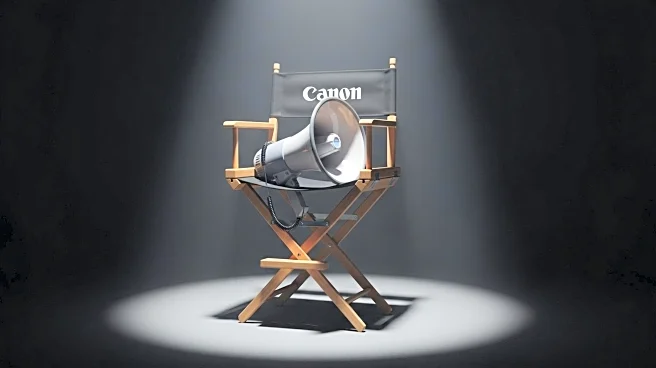What's Happening?
Veteran director Ridley Scott has sparked a significant debate within the film industry with his remark, 'We’re drowning in mediocrity,' delivered at a recent London event. The comment, which criticizes the quality of contemporary films, quickly gained traction across major entertainment outlets, including Deadline and Variety. The statement reflects a broader frustration among filmmakers regarding production incentives and the prevalence of formulaic projects. Scott's critique has prompted discussions about the industry's focus on safe, high-volume productions at the expense of creative and innovative storytelling.
Why It's Important?
Scott's critique highlights ongoing concerns about the state of Hollywood and the impact of commercial pressures on artistic expression. The debate underscores the tension between the demand for blockbuster hits and the need for quality, original content. Filmmakers and industry stakeholders are divided, with some viewing Scott's comments as a necessary wake-up call, while others see it as generational criticism. The discussion may influence future decisions on greenlighting projects, potentially shifting focus towards stronger scripts and innovative storytelling. Scott's stature in the industry lends weight to the conversation, potentially prompting studios to reevaluate their production strategies.
What's Next?
The industry may see increased scrutiny on the criteria used to greenlight projects, with a potential shift towards prioritizing quality over quantity. Scott's comments could inspire filmmakers and executives to advocate for more diverse and original content. The debate may lead to opinion pieces and discussions during awards season, emphasizing the need for change in Hollywood's approach to filmmaking. Studios may face pressure to balance commercial success with artistic integrity, potentially leading to a reevaluation of production incentives and strategies.
Beyond the Headlines
Scott's critique raises questions about the cultural and ethical responsibilities of filmmakers and studios in shaping public perception and cultural narratives. The focus on mediocrity in film production highlights the impact of commercial pressures on creative industries, prompting discussions about the role of art in society. The debate may influence broader cultural conversations about the value of originality and innovation in media, encouraging a shift towards more meaningful and impactful storytelling.










